
Together, We Work As One Team
Donald J. Leu
 Donald J. Leu is the John and Maria Neag Endowed Chair in Literacy and Technology at the University of Connecticut and directs the New Literacies Research Lab in the Neag School. He holds a joint appointment in Curriculum and Instruction and Educational Psychology in the Neag School of Education. A graduate of Michigan State, Harvard, and Berkeley, he is an international authority on literacy education, especially the new skills and strategies required to read, write, and learn with Internet technologies and the best instructional practices that prepare students for these new literacies. He is a member of the Reading Hall of Fame, Past President of the Literacy Research Association (National Reading Conference), and a former member of the Board of Directors of the International Reading Association. Don was recently featured in the documentary “Out of Print,” directed by Vivienne Roumani and narrated by Meryl Streep. He edited the Handbook of Research on New Literacies (Erlbaum, 2008) and co-authored “New literacies: A dual-level theory of the changing nature of literacy, instruction, and research” in Theoretical Models and Processes of Reading, Sixth Edition and has published more than 100 research publications and seventeen books. Don is a frequent speaker at major conferences and has given keynote addresses in Europe, Australia, Asia, South America, and North America. His work has been funded by the U.S. Department of Education, the National Science Foundation, the Department of Defense, the North Central Educational Research Lab, the Carnegie Corporation, the Institute for Education Sciences, PBS, the Annenberg Foundation, the William and Flora Hewlett Foundation, the Bill & Melinda Gates Foundation, the Australian Council of Educational Research, and the Organization for Economic Co-operation and Development (OECD).
Donald J. Leu is the John and Maria Neag Endowed Chair in Literacy and Technology at the University of Connecticut and directs the New Literacies Research Lab in the Neag School. He holds a joint appointment in Curriculum and Instruction and Educational Psychology in the Neag School of Education. A graduate of Michigan State, Harvard, and Berkeley, he is an international authority on literacy education, especially the new skills and strategies required to read, write, and learn with Internet technologies and the best instructional practices that prepare students for these new literacies. He is a member of the Reading Hall of Fame, Past President of the Literacy Research Association (National Reading Conference), and a former member of the Board of Directors of the International Reading Association. Don was recently featured in the documentary “Out of Print,” directed by Vivienne Roumani and narrated by Meryl Streep. He edited the Handbook of Research on New Literacies (Erlbaum, 2008) and co-authored “New literacies: A dual-level theory of the changing nature of literacy, instruction, and research” in Theoretical Models and Processes of Reading, Sixth Edition and has published more than 100 research publications and seventeen books. Don is a frequent speaker at major conferences and has given keynote addresses in Europe, Australia, Asia, South America, and North America. His work has been funded by the U.S. Department of Education, the National Science Foundation, the Department of Defense, the North Central Educational Research Lab, the Carnegie Corporation, the Institute for Education Sciences, PBS, the Annenberg Foundation, the William and Flora Hewlett Foundation, the Bill & Melinda Gates Foundation, the Australian Council of Educational Research, and the Organization for Economic Co-operation and Development (OECD).
Don’s Neag School Directory Page
Donna Bone
 Donna Bone is the Business Manager for the New Literacies Research Lab. Donna has a B.S. in Computer Science and Financial Management from Quinnipiac University and an M.S. in Elementary Education from Southern CT State University. Her work experience includes the corporate environment as a technical writer, computer programmer and revenues analyst, and the education environment as coordinator of a State of CT interdistrict grant and as a CT classroom teacher.
Donna Bone is the Business Manager for the New Literacies Research Lab. Donna has a B.S. in Computer Science and Financial Management from Quinnipiac University and an M.S. in Elementary Education from Southern CT State University. Her work experience includes the corporate environment as a technical writer, computer programmer and revenues analyst, and the education environment as coordinator of a State of CT interdistrict grant and as a CT classroom teacher.
Jill Castek
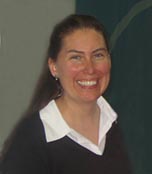 Jill Castek earned a Ph.D. from the Neag School at the University of Connecticut where she was a fellow in the New Literacies Research Lab. She is now a Research Assistant Professor at Portland State University with the Literacy, Language, and Technology Research Group. Jill is the principal investigator on an Institute for Museum and Library Services (IMLS) grant focused on digital literacy acquisition among vulnerable adult learners. Prior to joining the faculty at Portland State, she was a post-doc with the Seeds of Science Roots of Reading team at the University of California, Berkeley where she explored the use of digital tools to encourage science and literacy learning. A former elementary/middle grade teacher and reading specialist, Jill has over a decade of experience working with striving readers and English Language Learners. Her research examines opportunities for reading, writing, and collaborating on the Internet to extend literacy and content learning. She also explores a variety of instructional strategies to support online reading comprehension. Jill is a contributor to the Literacy Beat blog that focuses on literacy teaching ideas that make the most of Web 2.0 technologies. Her work also appears in the Journal of Adolescent and Adult Literacy (JAAL), Educational Forum, The Journal of Education, The Reading Teacher, and Reading and Writing Quarterly, among other journals. In her free time, Jill loves to travel and spend time outdoors hiking and exploring.
Jill Castek earned a Ph.D. from the Neag School at the University of Connecticut where she was a fellow in the New Literacies Research Lab. She is now a Research Assistant Professor at Portland State University with the Literacy, Language, and Technology Research Group. Jill is the principal investigator on an Institute for Museum and Library Services (IMLS) grant focused on digital literacy acquisition among vulnerable adult learners. Prior to joining the faculty at Portland State, she was a post-doc with the Seeds of Science Roots of Reading team at the University of California, Berkeley where she explored the use of digital tools to encourage science and literacy learning. A former elementary/middle grade teacher and reading specialist, Jill has over a decade of experience working with striving readers and English Language Learners. Her research examines opportunities for reading, writing, and collaborating on the Internet to extend literacy and content learning. She also explores a variety of instructional strategies to support online reading comprehension. Jill is a contributor to the Literacy Beat blog that focuses on literacy teaching ideas that make the most of Web 2.0 technologies. Her work also appears in the Journal of Adolescent and Adult Literacy (JAAL), Educational Forum, The Journal of Education, The Reading Teacher, and Reading and Writing Quarterly, among other journals. In her free time, Jill loves to travel and spend time outdoors hiking and exploring.
Julie Coiro
 Julie Coiro earned a Ph.D. from the Neag School at the University of Connecticut where she was a fellow in the New Literacies Research Lab. She is now an Associate Professor of Education at the University of Rhode Island. She has taught in preschool, elementary, and middle school classrooms. Julie has a Ph.D in Educational Psychology, a Masters Degree in Curriculum and Instruction, and a B.A. in Special Education. She also has fifteen years experience as a staff developer. Julie’s research focuses on strategic reading comprehension, new literacies of the Internet, and effective practices for technology integration and professional development. She co-authored the book Teaching with the Internet K-12: New Literacies for New Times with Don and Debbie Leu and has published in other venues such as Reading Research Quarterly, The Reading Teacher, Educational Leadership, Journal of Adolescent & Adult Literacy, and the 2nd Edition of the Handbook of Literacy and Technology. She is co-editor of The Handbook of Research in New Literacies.
Julie Coiro earned a Ph.D. from the Neag School at the University of Connecticut where she was a fellow in the New Literacies Research Lab. She is now an Associate Professor of Education at the University of Rhode Island. She has taught in preschool, elementary, and middle school classrooms. Julie has a Ph.D in Educational Psychology, a Masters Degree in Curriculum and Instruction, and a B.A. in Special Education. She also has fifteen years experience as a staff developer. Julie’s research focuses on strategic reading comprehension, new literacies of the Internet, and effective practices for technology integration and professional development. She co-authored the book Teaching with the Internet K-12: New Literacies for New Times with Don and Debbie Leu and has published in other venues such as Reading Research Quarterly, The Reading Teacher, Educational Leadership, Journal of Adolescent & Adult Literacy, and the 2nd Edition of the Handbook of Literacy and Technology. She is co-editor of The Handbook of Research in New Literacies.
Julie Corrigan
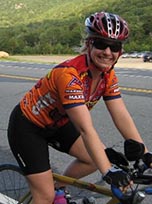 Julie Corrigan was a visiting doctoral scholar at the New Literacies Research Lab at the Neag School in the University of Connecticut. She received the Bombardier Canada Graduate Scholarship for this. She is currently an advanced doctoral student and graduate Research Assistant in the Faculty of Education at the University of Ottawa, completing her dissertation. Her research interests include digital literacies, ecocomposition, e-learning, digital composition, and e-tutoring. She has published a number of articles including A framework for using consequential validity evidence in evaluating large-scale writing assessments: A Canadian study in Research in the Teaching of English and a chapter in the Handbook of Research on Writing. Previously, she was a secondary school English teacher at Renfrew County Catholic District School Board in Pembroke, Canada for several years.
Julie Corrigan was a visiting doctoral scholar at the New Literacies Research Lab at the Neag School in the University of Connecticut. She received the Bombardier Canada Graduate Scholarship for this. She is currently an advanced doctoral student and graduate Research Assistant in the Faculty of Education at the University of Ottawa, completing her dissertation. Her research interests include digital literacies, ecocomposition, e-learning, digital composition, and e-tutoring. She has published a number of articles including A framework for using consequential validity evidence in evaluating large-scale writing assessments: A Canadian study in Research in the Teaching of English and a chapter in the Handbook of Research on Writing. Previously, she was a secondary school English teacher at Renfrew County Catholic District School Board in Pembroke, Canada for several years.
Jessica Flake
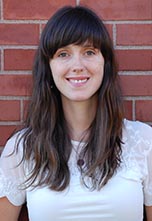 Jessica is a doctoral student and adjunct professor in the Measurement, Evaluation, and Assessment program. She is originally from the Cincinnati area, where she earned a B.S. in psychology with a concentration in statistics. She earned an M.A. in quantitative psychology at James Madison University prior to coming to UCONN to pursue her PhD. Much of her training is in the application of quantitative methods for educational research and assessment. Substantively, she is interested in the measurement of student motivation and its relationship to student retention and success. Methodologically, she is interested in the application of multilevel modeling and structural equation modeling to answer measurement and effectiveness questions. When she is not analyzing data or learning how to, she enjoys to road cycle, play Settlers of Catan, lift weights, cook, and walk her dog (Lola aka LOLz).
Jessica is a doctoral student and adjunct professor in the Measurement, Evaluation, and Assessment program. She is originally from the Cincinnati area, where she earned a B.S. in psychology with a concentration in statistics. She earned an M.A. in quantitative psychology at James Madison University prior to coming to UCONN to pursue her PhD. Much of her training is in the application of quantitative methods for educational research and assessment. Substantively, she is interested in the measurement of student motivation and its relationship to student retention and success. Methodologically, she is interested in the application of multilevel modeling and structural equation modeling to answer measurement and effectiveness questions. When she is not analyzing data or learning how to, she enjoys to road cycle, play Settlers of Catan, lift weights, cook, and walk her dog (Lola aka LOLz).
Elena Forzani
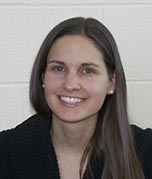 Elena Forzani is a Neag Fellow, doctoral student, and researcher with the New Literacies Research Lab at the University of Connecticut. Prior to joining the New Literacies Research Team, she taught first grade and high school English and Reading. Her research interests focus on understanding how students read and comprehend disciplinary texts in digital literacies contexts. Elena and Cheryl Maykel won the Wirth – Santoro Award for Outstanding Literacy Research from the Connecticut Association for Reading Research. The award was presented for their study, “Evaluating Connecticut Students’ Ability to Critically Evaluate Online Information.” She also has co-authored chapters in: the Handbook of Individual Differences in Reading: Reader, Text, and Context (Routledge), edited by Peter Afflerbach; the 5th Edition of Best Practices in Literacy Instruction edited by Morrow and Gambrell; and The Administration and Supervision of Reading Programs, 5th edition, edited by Wepner, Strickland, and Quatroche. Elena earned her Masters of Education in literacy from the University of Michigan.
Elena Forzani is a Neag Fellow, doctoral student, and researcher with the New Literacies Research Lab at the University of Connecticut. Prior to joining the New Literacies Research Team, she taught first grade and high school English and Reading. Her research interests focus on understanding how students read and comprehend disciplinary texts in digital literacies contexts. Elena and Cheryl Maykel won the Wirth – Santoro Award for Outstanding Literacy Research from the Connecticut Association for Reading Research. The award was presented for their study, “Evaluating Connecticut Students’ Ability to Critically Evaluate Online Information.” She also has co-authored chapters in: the Handbook of Individual Differences in Reading: Reader, Text, and Context (Routledge), edited by Peter Afflerbach; the 5th Edition of Best Practices in Literacy Instruction edited by Morrow and Gambrell; and The Administration and Supervision of Reading Programs, 5th edition, edited by Wepner, Strickland, and Quatroche. Elena earned her Masters of Education in literacy from the University of Michigan.
Kent Golden
 Kent Golden is a former graduate assistant for the New Literacies Research Lab, and current webmaster for certain projects. He is now an Instructor of Communications in the Film, Video and Interactive Media department at Quinnipiac University. Owner of Golden Multimedia, his professional work includes web design, animation, audio and video production, special effects, and a specialty in interactive museum exhibits and mobile apps. Some of his work can be seen on permanent exhibit at the Yale Peabody Museum of Natural History, while other projects can be viewed at www.GoldenMultimedia.com. His background includes tech support and systems administration, as well as custom Audio/Video design and programming. He has a B.A. in Psychology from Quinnipiac College, a Master’s in Educational Technology from the University of Connecticut, studied Digital Video at Yale University, and has certifications from Microsoft and Crestron. He is also Apple certified for iOS app development.
Kent Golden is a former graduate assistant for the New Literacies Research Lab, and current webmaster for certain projects. He is now an Instructor of Communications in the Film, Video and Interactive Media department at Quinnipiac University. Owner of Golden Multimedia, his professional work includes web design, animation, audio and video production, special effects, and a specialty in interactive museum exhibits and mobile apps. Some of his work can be seen on permanent exhibit at the Yale Peabody Museum of Natural History, while other projects can be viewed at www.GoldenMultimedia.com. His background includes tech support and systems administration, as well as custom Audio/Video design and programming. He has a B.A. in Psychology from Quinnipiac College, a Master’s in Educational Technology from the University of Connecticut, studied Digital Video at Yale University, and has certifications from Microsoft and Crestron. He is also Apple certified for iOS app development.
Douglas Hartman
 Douglas Hartman is a former Professor at the New Literacies Research Lab in the Neag School of the University of Connecticut. He is now Professor of Literacy and Technology at Michigan State University with appointments in Teacher Education and Educational Psychology. He also holds appointments as Co-Director of the Literacy Achievement Research Center and Research Fellow with the Center for Health Intervention & Prevention. He is a former editor of the Journal of Literacy Research. He serves as co-director of the Literacy Achievement Research Center (LARC) and coordinator of the Literacy Studies program. His research interests focus on new literacies, adolescent literacy, and the history of literacy.
Douglas Hartman is a former Professor at the New Literacies Research Lab in the Neag School of the University of Connecticut. He is now Professor of Literacy and Technology at Michigan State University with appointments in Teacher Education and Educational Psychology. He also holds appointments as Co-Director of the Literacy Achievement Research Center and Research Fellow with the Center for Health Intervention & Prevention. He is a former editor of the Journal of Literacy Research. He serves as co-director of the Literacy Achievement Research Center (LARC) and coordinator of the Literacy Studies program. His research interests focus on new literacies, adolescent literacy, and the history of literacy.
Laurie Henry
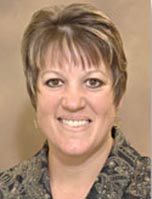 Laurie A. Henry earned a Ph.D. from the Neag School at the University of Connecticut where she was a fellow in the New Literacies Research Lab. She is now Associate Professor of Early Adolescent Literacy at the University of Kentucky. She is a certified middle school teacher with a Masters Degree in Curriculum and Instruction and PhD in Educational Psychology with an emphasis in Literacy and Technology. Laurie provides professional development for educators in the area of technology integration and the new literacies of the Internet. Laurie is the 2005 recipient of the Nila Banton Smith Research Dissemination Support Grant from the International Reading Association. Her current research interest focuses on the reading strategies that are used when searching for information on the Internet and equity issues related to the digital divide. Laurie is heading up a partnership with Fayette County Public Schools for a new STEAM Academy high school.
Laurie A. Henry earned a Ph.D. from the Neag School at the University of Connecticut where she was a fellow in the New Literacies Research Lab. She is now Associate Professor of Early Adolescent Literacy at the University of Kentucky. She is a certified middle school teacher with a Masters Degree in Curriculum and Instruction and PhD in Educational Psychology with an emphasis in Literacy and Technology. Laurie provides professional development for educators in the area of technology integration and the new literacies of the Internet. Laurie is the 2005 recipient of the Nila Banton Smith Research Dissemination Support Grant from the International Reading Association. Her current research interest focuses on the reading strategies that are used when searching for information on the Internet and equity issues related to the digital divide. Laurie is heading up a partnership with Fayette County Public Schools for a new STEAM Academy high school.
Clint Kennedy
 Clint Kennedy is a doctoral student in Cognition, Instruction, and Learning Technologies, a Neag Fellow, and a member of the New Literacies Research Lab at the University of Connecticut. He was the Chief Technology Officer for Branford Public Schools for 6 years and the former Director of Technology for Stonington Public Schools for 9 years both in Connecticut. Currently, Clint is working as a Scholar-In-Residence at the New London Science and Technology Magnet School in New London, Connecticut. He earned his Masters in Educational Psychology from the University of Connecticut and received his undergraduate degree in Engineering at the University of Pennsylvania.
Clint Kennedy is a doctoral student in Cognition, Instruction, and Learning Technologies, a Neag Fellow, and a member of the New Literacies Research Lab at the University of Connecticut. He was the Chief Technology Officer for Branford Public Schools for 6 years and the former Director of Technology for Stonington Public Schools for 9 years both in Connecticut. Currently, Clint is working as a Scholar-In-Residence at the New London Science and Technology Magnet School in New London, Connecticut. He earned his Masters in Educational Psychology from the University of Connecticut and received his undergraduate degree in Engineering at the University of Pennsylvania.
Lisa Kervin
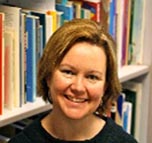 Lisa Kervin is an Associate Professor in the Faculty of Education, University of Wollongong, and was a visiting scholar at the New Literacies Research Lab. Lisa’s current research interests are related to the literacy development of children and the use of technology to support student learning and teacher professional development. She is the NSW Director of the Australian Literacy Educators Association (ALEA). She co-edits the journal “Practically Primary” and in 2012 she convened the National ALEA Conference in Sydney. She has been awarded a number of research grants for her work and has won the Vice Chancellor’s award for Excellence in Interdisciplinary Research as well as the International Reading / Literacy Research Fellowship.
Lisa Kervin is an Associate Professor in the Faculty of Education, University of Wollongong, and was a visiting scholar at the New Literacies Research Lab. Lisa’s current research interests are related to the literacy development of children and the use of technology to support student learning and teacher professional development. She is the NSW Director of the Australian Literacy Educators Association (ALEA). She co-edits the journal “Practically Primary” and in 2012 she convened the National ALEA Conference in Sydney. She has been awarded a number of research grants for her work and has won the Vice Chancellor’s award for Excellence in Interdisciplinary Research as well as the International Reading / Literacy Research Fellowship.
Carita Kiili
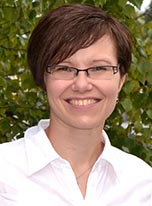 Carita Kiili was a visiting doctoral scholar at the New Literacies Research Lab at the Neag School in the University of Connecticut. Carita is from the University of Jyvaskyla, Finland, where she is a post doctoral researcher in Education and is also a member of the eSeek project, a research grant funded by the Academy of Science in Finland. Caria won the CICERO Learning 2012 doctoral thesis prize award in 2012 for her work, “Online reading as an individual and social practice.” Carita research focuses on collaborative online reading and writing. She has published in a variety of venues including the Journal of Literacy Research, Journal of Educational Computing, the Journal of Adolescent and Adult Literacy, Handbook of Research on New Media Literacy, and Handbook of Individual Differences in Reading: Reader, Text, and Context (Routledge), edited by Peter Afflerbach.
Carita Kiili was a visiting doctoral scholar at the New Literacies Research Lab at the Neag School in the University of Connecticut. Carita is from the University of Jyvaskyla, Finland, where she is a post doctoral researcher in Education and is also a member of the eSeek project, a research grant funded by the Academy of Science in Finland. Caria won the CICERO Learning 2012 doctoral thesis prize award in 2012 for her work, “Online reading as an individual and social practice.” Carita research focuses on collaborative online reading and writing. She has published in a variety of venues including the Journal of Literacy Research, Journal of Educational Computing, the Journal of Adolescent and Adult Literacy, Handbook of Research on New Media Literacy, and Handbook of Individual Differences in Reading: Reader, Text, and Context (Routledge), edited by Peter Afflerbach.
Cheryl Maykel
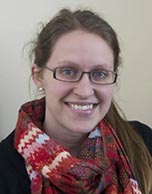 Cheryl Maykel is a doctoral candidate in the school psychology program at UConn. She earned an M.A. in Educational Psychology from UConn in 2010, and a B.S. in Psychology and Spanish from Worcester State University in 2009. Cheryl has been working in the New Literacies Research Lab since 2011 as a Graduate Research Assistant on the ORCA Project. She co-taught New Literacies Research & Practice, an online course, with other members of the Lab. She studies the critical evaluation of online reading and research along with other aspects of New Literacies. Cheryl and Elena Forzani won the Wirth – Santoro Award for Outstanding Literacy Research from the Connecticut Association for Reading Research. The award was presented for their study, “Evaluating Connecticut Students’ Ability to Critically Evaluate Online Information.” She also studies mind-body treatments for both mental and physical disorders.
Cheryl Maykel is a doctoral candidate in the school psychology program at UConn. She earned an M.A. in Educational Psychology from UConn in 2010, and a B.S. in Psychology and Spanish from Worcester State University in 2009. Cheryl has been working in the New Literacies Research Lab since 2011 as a Graduate Research Assistant on the ORCA Project. She co-taught New Literacies Research & Practice, an online course, with other members of the Lab. She studies the critical evaluation of online reading and research along with other aspects of New Literacies. Cheryl and Elena Forzani won the Wirth – Santoro Award for Outstanding Literacy Research from the Connecticut Association for Reading Research. The award was presented for their study, “Evaluating Connecticut Students’ Ability to Critically Evaluate Online Information.” She also studies mind-body treatments for both mental and physical disorders.
J. Greg McVerry
 Greg McVerry earned a Ph.D. from the Neag School at the University of Connecticut where he was a fellow in the New Literacies Research Lab. He is now an assistant professor at Southern Connecticut State University. Greg researches the intersection of literacy and technology and has published over a dozen articles in leading teacher and research journals. He also presents at national conferences including the National Conference of Teachers of English, International Reading Association, Literacy Research Association, and MIT’s Learning and the Brain Conference. Greg was a former middle school language arts and math teacher.
Greg McVerry earned a Ph.D. from the Neag School at the University of Connecticut where he was a fellow in the New Literacies Research Lab. He is now an assistant professor at Southern Connecticut State University. Greg researches the intersection of literacy and technology and has published over a dozen articles in leading teacher and research journals. He also presents at national conferences including the National Conference of Teachers of English, International Reading Association, Literacy Research Association, and MIT’s Learning and the Brain Conference. Greg was a former middle school language arts and math teacher.
W. Ian O’Byrne
 Ian O’Byrne earned a Ph.D. from the Neag School at the University of Connecticut where he was a fellow in the New Literacies Research Lab. He is now an Assistant Professor at the University of New Haven where he is the Education Department’s Coordinator for the Sixth Year Diploma in Instructional Technologies and Digital Media Literacy. He has been instrumental in bringing meaningful instructional technology practices to the department’s students and faculty. Ian has been involved in initiatives in school districts ranging from online and hybrid coursework, integrating technology in the classroom, ePortfolio systems, and supporting marginalized students in literacy practices. He is currently a member of the American Educational Research Association, the National Council of Teachers of English, and currently serves on the Policy and Legislative Committee for the Literacy Research Association, and the Technology, Communication, and Literacy committee for the International Reading Association. His research examines the literacy practices of individuals as they read, write, and communicate in online spaces. Additionally, he is interested in assessment and psychometric properties of these measurements as we move online.
Ian O’Byrne earned a Ph.D. from the Neag School at the University of Connecticut where he was a fellow in the New Literacies Research Lab. He is now an Assistant Professor at the University of New Haven where he is the Education Department’s Coordinator for the Sixth Year Diploma in Instructional Technologies and Digital Media Literacy. He has been instrumental in bringing meaningful instructional technology practices to the department’s students and faculty. Ian has been involved in initiatives in school districts ranging from online and hybrid coursework, integrating technology in the classroom, ePortfolio systems, and supporting marginalized students in literacy practices. He is currently a member of the American Educational Research Association, the National Council of Teachers of English, and currently serves on the Policy and Legislative Committee for the Literacy Research Association, and the Technology, Communication, and Literacy committee for the International Reading Association. His research examines the literacy practices of individuals as they read, write, and communicate in online spaces. Additionally, he is interested in assessment and psychometric properties of these measurements as we move online.
Christopher Rhoads
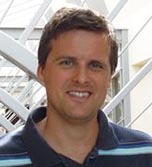 Chris Rhoads is an Assistant Professor in the Measurement, Evaluation and Assessment program at the Neag School of the University of Connecticut. He received his Ph.D. in Statistics from Northwestern University in 2008 and was an Institute of Education Sciences Post-Doctoral Fellow, under the direction of Dr. Larry Hedges, from 2008-2011. His research involves finding ways to implement cost effective research designs in ways that facilitate credible causal inferences about educational policies and practices. His recent publications focus on the implications of contamination for experimental design, the optimal design of regression discontinuity studies and the use of prior information about the correlation structure to improve statistical power in cluster randomized experiments. This research has been published in scholarly outlets such as the Journal of Educational and Behavioral Statistics, the Journal of Research on Educational Effectiveness and the British Journal of Mathematical and Statistical Psychology.
Chris Rhoads is an Assistant Professor in the Measurement, Evaluation and Assessment program at the Neag School of the University of Connecticut. He received his Ph.D. in Statistics from Northwestern University in 2008 and was an Institute of Education Sciences Post-Doctoral Fellow, under the direction of Dr. Larry Hedges, from 2008-2011. His research involves finding ways to implement cost effective research designs in ways that facilitate credible causal inferences about educational policies and practices. His recent publications focus on the implications of contamination for experimental design, the optimal design of regression discontinuity studies and the use of prior information about the correlation structure to improve statistical power in cluster randomized experiments. This research has been published in scholarly outlets such as the Journal of Educational and Behavioral Statistics, the Journal of Research on Educational Effectiveness and the British Journal of Mathematical and Statistical Psychology.
Nicole Timbrell
 Nicole Timbrell was an international graduate student in Cognition, Instruction and Learning Technologies at the University of Connecticut where she was also a Fellow and a Graduate Research Assistant in the New Literacies Research Lab. Previously she has completed a Master of Arts (English) at The University of Sydney, as well as a Graduate Diploma in Journalism and a Bachelor of Arts at The University of Technology, Sydney. Nicole is a classroom teacher with 14 years experience and, when living in her home town of Sydney, Australia, she teaches English to secondary school students at Loreto Kirribilli, in Sydney. Her research interests include adolescent literacy, new literacies, and educational technology. She can be contacted on Twitter at: @nicloutim
Nicole Timbrell was an international graduate student in Cognition, Instruction and Learning Technologies at the University of Connecticut where she was also a Fellow and a Graduate Research Assistant in the New Literacies Research Lab. Previously she has completed a Master of Arts (English) at The University of Sydney, as well as a Graduate Diploma in Journalism and a Bachelor of Arts at The University of Technology, Sydney. Nicole is a classroom teacher with 14 years experience and, when living in her home town of Sydney, Australia, she teaches English to secondary school students at Loreto Kirribilli, in Sydney. Her research interests include adolescent literacy, new literacies, and educational technology. She can be contacted on Twitter at: @nicloutim
Mary Truxaw
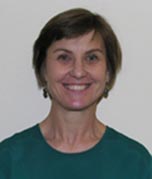 Mary Truxaw is an Associate Professor of Mathematics Education in the Department of Curriculum & Instruction (EDCI) in the Neag School of Education at the University of Connecticut. Mary’s primary research centers on the intersection of mathematics education and language. Mary is currently working on several research grants to apply discourse analysis models to linguistically diverse mathematics classrooms. Before earning her Ph.D., Mary was a public school teacher in Connecticut, New York, and California, where she developed her love for and curiosity about teaching and learning of mathematics.
Mary Truxaw is an Associate Professor of Mathematics Education in the Department of Curriculum & Instruction (EDCI) in the Neag School of Education at the University of Connecticut. Mary’s primary research centers on the intersection of mathematics education and language. Mary is currently working on several research grants to apply discourse analysis models to linguistically diverse mathematics classrooms. Before earning her Ph.D., Mary was a public school teacher in Connecticut, New York, and California, where she developed her love for and curiosity about teaching and learning of mathematics.
Lisa Zawalinski
 Lisa Zawilinski earned a Ph.D. from the Neag School at the University of Connecticut where she was a fellow in the New Literacies Research Lab. She is now an Assistant Professor of Elementary Education at the University of Hartford. She is a certified elementary teacher and reading consultant. She earned both a Masters Degree and PhD in Curriculum and Instruction at the University of Connecticut. Lisa provides professional development for educators in the areas of technology integration and the new literacies of the Internet. She has published in the Reading Teacher and for NCTE and has a forthcoming chapter in the Handbook of Writing Research. Lisa’s current research interest focuses on the use of Internet communication technologies in primary grade classrooms.
Lisa Zawilinski earned a Ph.D. from the Neag School at the University of Connecticut where she was a fellow in the New Literacies Research Lab. She is now an Assistant Professor of Elementary Education at the University of Hartford. She is a certified elementary teacher and reading consultant. She earned both a Masters Degree and PhD in Curriculum and Instruction at the University of Connecticut. Lisa provides professional development for educators in the areas of technology integration and the new literacies of the Internet. She has published in the Reading Teacher and for NCTE and has a forthcoming chapter in the Handbook of Writing Research. Lisa’s current research interest focuses on the use of Internet communication technologies in primary grade classrooms.
Alexandria Cipolla
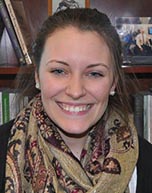 Alexandria Cipolla earned her masters degree in Curriculum & Instruction at the University of Connecticut, where she was also a Graduate Research Assistant in the New Literacies Research Lab. Previously she completed a dual degree in Elementary Education and English, and graduated from the Neag School of Education’s IB/M Program. She is now a first grade teacher in Connecticut.
Alexandria Cipolla earned her masters degree in Curriculum & Instruction at the University of Connecticut, where she was also a Graduate Research Assistant in the New Literacies Research Lab. Previously she completed a dual degree in Elementary Education and English, and graduated from the Neag School of Education’s IB/M Program. She is now a first grade teacher in Connecticut.
Allison Kucia
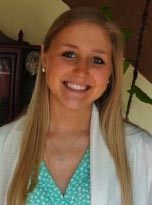 Allison Kucia is a Student Clerical Technician in the New Literacies Research Lab. In this position, Allison provides support to the lab as administrative specialist on an ongoing basis, and as a human behavior research assistant when research data is gathered from research sites. Allison is currently a masters student in the Neag School of Education’s IB/M Program. She has completed a dual undergraduate degree in Elementary Education and English.
Allison Kucia is a Student Clerical Technician in the New Literacies Research Lab. In this position, Allison provides support to the lab as administrative specialist on an ongoing basis, and as a human behavior research assistant when research data is gathered from research sites. Allison is currently a masters student in the Neag School of Education’s IB/M Program. She has completed a dual undergraduate degree in Elementary Education and English.
Caroline Katzman
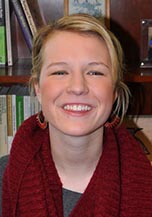 Caroline Katzman is an Administrative Specialist in the New Literacies Research Lab. She is currently a senior at the University of Connecticut in the Neag School of Education’s IB/M program, where she is pursuing a degree in Elementary Education.
Caroline Katzman is an Administrative Specialist in the New Literacies Research Lab. She is currently a senior at the University of Connecticut in the Neag School of Education’s IB/M program, where she is pursuing a degree in Elementary Education.
Julia Kara-Soteriou
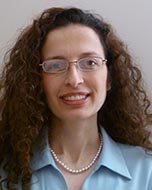 Julia Kara-Soteriou earned a Ph.D. in Curriculum and Instruction from the Neag School of Education at the University of Connecticut. While a doctoral student she worked on the CTELL Research Project, funded by NSF, and taught at UConn’s Integrated Bachelor’s/Master’s Teacher Preparation Program. Later she worked as a faculty in the Division of Education at the University of Bridgeport and she is now an Associate Professor of Reading and Language Arts at Central Connecticut State University. There she coordinates the Undergraduate Reading Program for Elementary Education majors and teaches both undergraduate and graduate courses. In her teaching, Julia addresses word identification, comprehension strategies, second language acquisition, and content area reading. Julia’s research interests are mainly focused on the integration of literacy and technology in the general education classroom, as well as in the schools’ computer labs, and the preparation of teachers to apply and teach new literacies. Julia co-edited the book Innovative Approaches to Literacy Education: Using the Internet to Support New Literacies (IRA, 2005) and wrote several articles on the use of technology in the literacy classroom. Julia has also given many conference presentations on technology and literacy integration and on the instruction of English Learners.
Julia Kara-Soteriou earned a Ph.D. in Curriculum and Instruction from the Neag School of Education at the University of Connecticut. While a doctoral student she worked on the CTELL Research Project, funded by NSF, and taught at UConn’s Integrated Bachelor’s/Master’s Teacher Preparation Program. Later she worked as a faculty in the Division of Education at the University of Bridgeport and she is now an Associate Professor of Reading and Language Arts at Central Connecticut State University. There she coordinates the Undergraduate Reading Program for Elementary Education majors and teaches both undergraduate and graduate courses. In her teaching, Julia addresses word identification, comprehension strategies, second language acquisition, and content area reading. Julia’s research interests are mainly focused on the integration of literacy and technology in the general education classroom, as well as in the schools’ computer labs, and the preparation of teachers to apply and teach new literacies. Julia co-edited the book Innovative Approaches to Literacy Education: Using the Internet to Support New Literacies (IRA, 2005) and wrote several articles on the use of technology in the literacy classroom. Julia has also given many conference presentations on technology and literacy integration and on the instruction of English Learners.